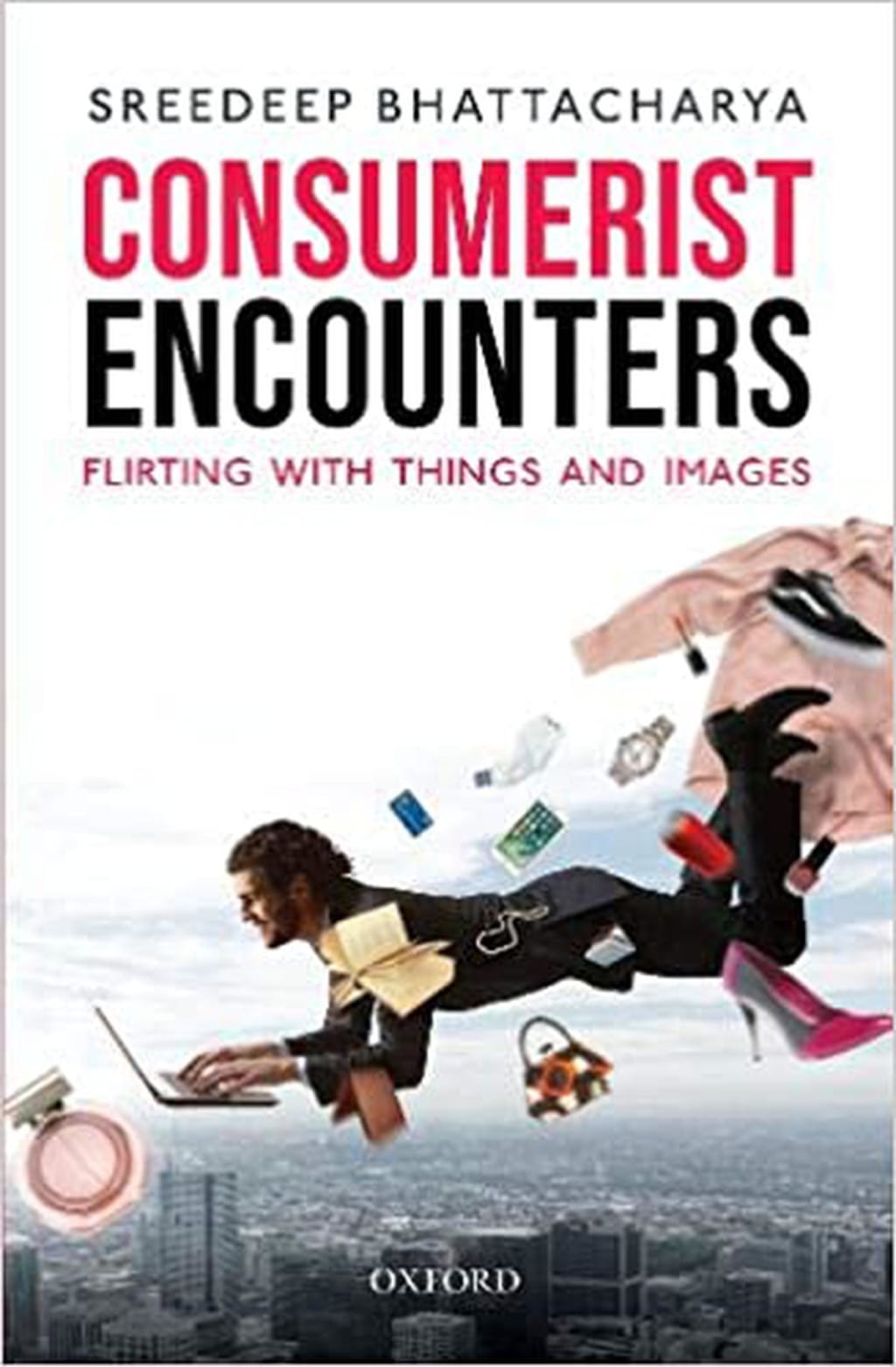
But it has some basic truths about how a post-liberalised India became so spoilt for choice that it was caught in its own vortex of craving, consumption and exhaustion. It considers the impact of materialism on our social fabric at par with post-colonial discourses on social inequities.
One is reminded of the cult movie Fight Club’s famous dialogue “the things you own, end up owning you” while leafing through the pages. The author makes “things” or “commodities” the locus of his argument with almost a Jungian thrust on the visual manifestation of these material commodities. The book explores the intersections of commodity and images - the integration of material, visual, popular and digital in giving meaning to post-liberalisation consumption and social transformations.
The author, Sreedeep Bhattacharya, laments the fact that academia has so far shied away from writing on materialism and its impact on societal behaviour. The methods of enquiry and analysis, too, so far have been more textual, whereas the last three decades of liberalisation have seen a flood of visual interactions, creating a visually mediated culture. He further argues that social anthropological investigations must move beyond finding academic pleasure in poverty porn. Scholars must move from the margins to the malls and take cognisance of the new social milieu, as these new spaces of consumption are now the mainstream visual leitmotifs.
The book focuses on a new set of hitherto academically unexplored visual manifestations in contemporary society, be it its materialistic needs, wants, desires, aspirations; or the metamorphic symbols of capitalism emerging from socialist structures; or the newest signifiers of technology, globalisation juxtaposed with the signified individual’s self-image and unique identity. Bhattacharya calls these “commodity narratives” that mould and shape our thinking, our relationships, our behaviour in the emerging consumerist landscape.
He alternatively wears the hat of the consumer and the scholar. He sees himself as the “aroused and excited consumer” at the core, with his scholarly-self, casting an academic eye, while commentating on the journey of the liberalised consumer, from repressed consumption to conspicuous indulgence.
He gets more personal in this consumerist journey where he touches upon an eclectic mix of commodity surfaces, ranging from mobile phones, cars, jeans, t-shirts - how their messaging adulate the human body, how the burgeoning aspirations of the middle class scavenges to own a unique identity, how the new age jobs of call-centres stoke new consumerist desires; how the visual culture captured from a professional lens moved to user generated images; how liberalisation fomented the use and throw behaviour of consumers and, finally, how this transient relationship with commodities is also reflective of our real life relationships with fellow humans, technology and nature. It’s all ephemeral, contractual, temporal and promiscuous, with no deep commitment to anyone. Loyalty is becoming a canine value at best and opportunity-driven at worst!
So, is liberalisation responsible for weakening the moral fabric of our society? Or, did it have a positive impact on our collective psyche, other than the obvious economic benefits our country reaped?
Read the book to find out for yourself. It has a little bit of everything for everybody. For a student of consumer culture and anthropology, this book takes one through a chequered transition, from pre-liberalised information and unprocessed data, into post liberalised visual imagery. For a marketing and branding practitioner, familiar with visual imagery, brand positioning, aspirational identities, the book provides a refreshing take on textual, visual, spatial, linguistics and sonic semiotics of consuming categories s/he calls brands. And, of course, for the scholar it makes a lucid case for “releasing Indian sociology from the rural house arrest.”
(Shalini Rawla is founder and CEO of The Key, a consumer behaviour intelligence firm)






Comments
There are no comments for this story
Be the first to respond and start the conversation.